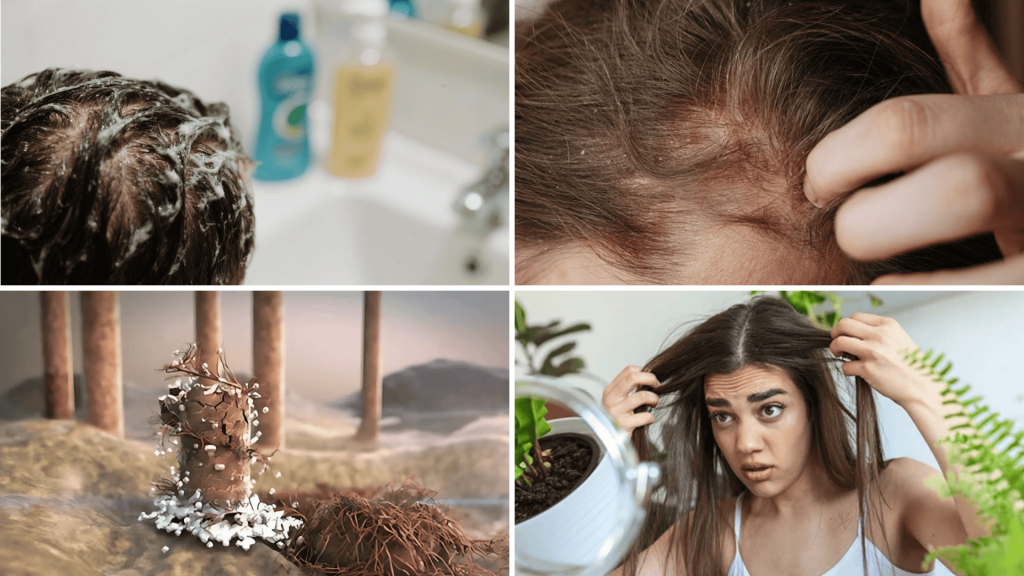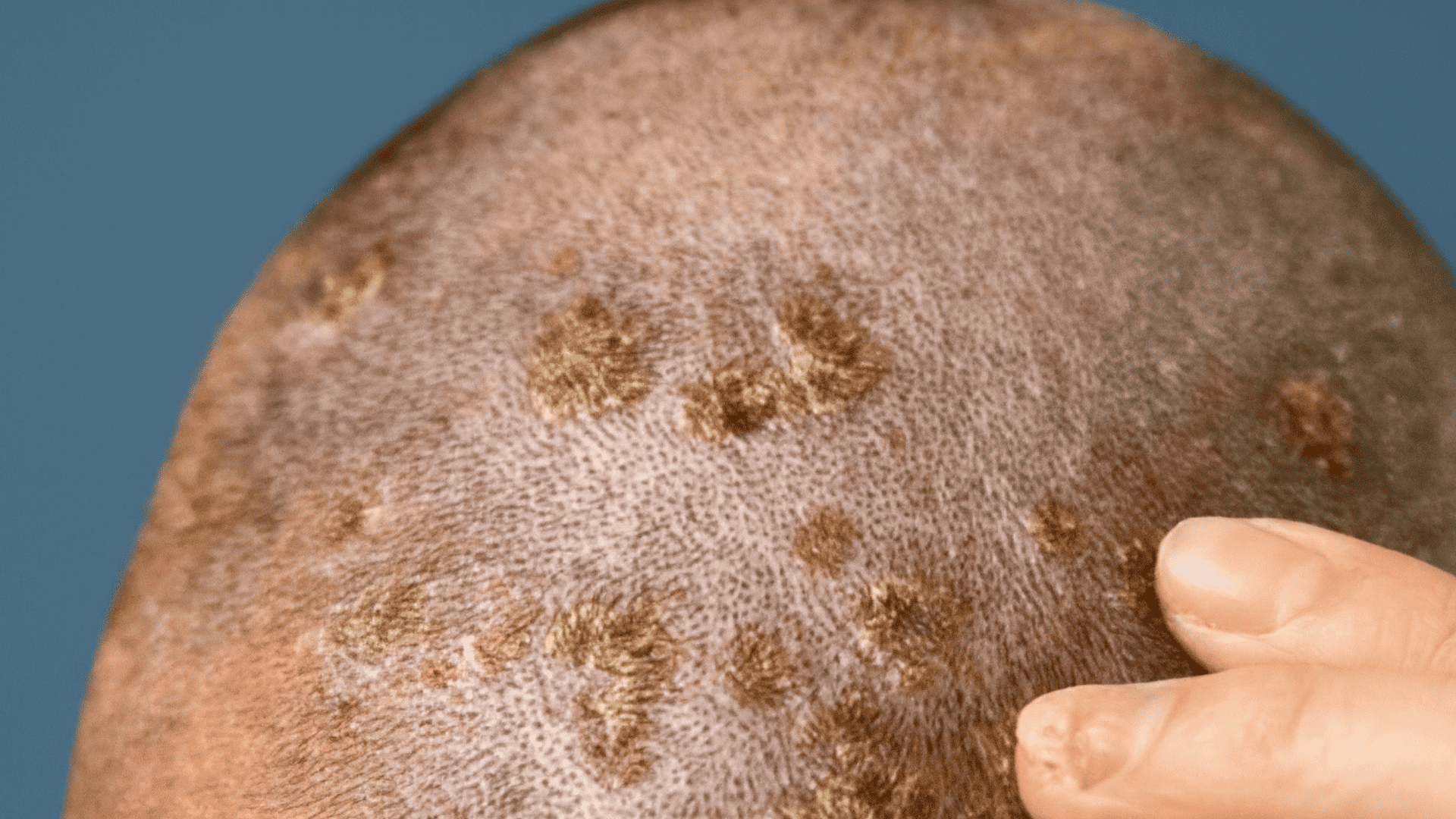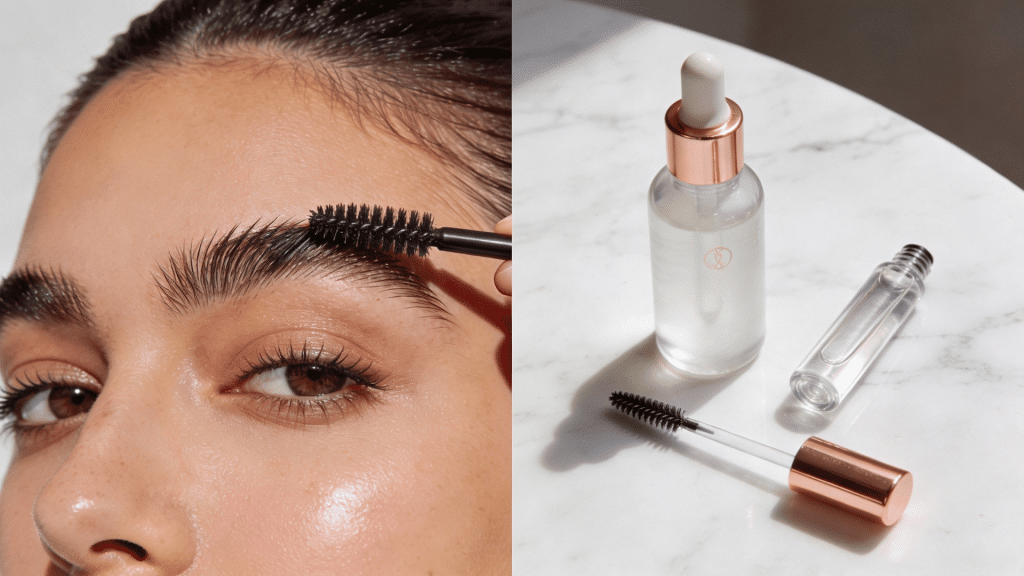Scalp odor is a surprisingly common issue that can affect anyone, often leaving people asking, Why does my scalp smell or wondering What does scalp fungus smell like.
A persistent, unpleasant odor on the scalp, often referred to as a smelly scalp, can be embarrassing and may affect confidence or social interactions.
Many avoid close contact because of it, feeling self-conscious about their hair and appearance. The good news is that these conditions are treatable.
By identifying the underlying cause, such as fungal infections or seborrheic dermatitis, individuals can find effective solutions through simple home remedies or medical care.
Is a Smelly Scalp Normal?
A certain degree of scalp odor can be normal after exercise, hot weather, or exposure to polluted environments. The scalp naturally produces oils and sweat, creating mild odors easily resolved with regular shampooing.
However, if you’re wondering what does scalp fungus smell like, fungal infections produce distinctive sour or yeasty odors that persist despite regular washing.
This smell is different from regular sweat odors. Knowing what scalp fungus smells like can help you recognize when unusual odors might be signaling underlying issues, such as bacterial overgrowth or seborrheic dermatitis.
These conditions often need specific treatments, so it’s important to seek proper care rather than just relying on better hygiene.
Why Does My Scalp Smell: Causes

Many people ask, Why does my scalp smell or What does scalp fungus smell like. In most cases, odors signal a range of issues, from product buildup to scalp conditions that may require treatment.
1. Product Buildup and Poor Washing Routines
When hair products, natural oils, and dead skin cells aren’t removed properly, they accumulate on the scalp and trap odors.
Overwashing strips scalp oils, prompting overproduction of sebum, while under-washing leaves dirt and residue. Both disrupt the scalp’s balance, fostering odor-causing bacteria and fungi.
2. Environmental Factors and Pollution
Smoke, dust, and airborne pollutants easily cling to the hair and scalp, often leaving behind a lingering smell. These particles can penetrate scalp tissue and mix with natural oils, intensifying the odor.
Without thorough cleansing, environmental buildup continues to accumulate, making regular washing less effective over time.
3. Microbiome Imbalance
The scalp hosts a delicate ecosystem of bacteria and fungi that usually live in balance. When this microbiome is disrupted, harmful microorganisms can overgrow and produce unpleasant smells.
Such an imbalance may be triggered by stress, diet, product overuse, or changes in scalp hygiene, leading to a noticeable shift in odor.
4. Skin Conditions
Scalp disorders such as seborrheic dermatitis, psoriasis, and eczema cause inflammation, itching, and excessive flaking.
These conditions not only disrupt the scalp barrier but also increase cell turnover, which feeds bacteria and yeast. The combined effect often produces a sour or musty smell that doesn’t go away with simple shampooing.
5. Fungal Infections
Infections like tinea capitis (scalp ringworm) give off distinctive odors because fungi feed on keratin, the protein in hair and skin.
This breakdown process releases strong, musty, or sour smells that differ from regular sweat-related odors. Symptoms often include scaling, hair breakage, and sometimes tender patches on the scalp.
6. Hormonal and Medical Conditions
Hormonal shifts, such as those during puberty, menstruation, or thyroid imbalances, can change scalp oil production. Excess oil creates a breeding ground for bacteria and fungi that generate odors.
Additionally, certain medical conditions affect metabolism and sweat composition, which can make the scalp smell stronger or unusual.
7. Excessive Sweat and Bacterial Activity
A sweaty scalp provides moisture that bacteria use to multiply quickly. This often produces sour, ammonia-like, or even vinegar-type odors that worsen in hot climates or after exercise.
If you don’t wash away sweat soon enough, it can combine with oils and dead skin, making the smell and discomfort worse.
A foul-smelling scalp is often caused by a combination of lifestyle, skin health, and hygiene factors. Noticing the signs early makes it easier to treat and manage.
At-Home Fixes That Actually Help Smelly Scalp

Treating an unpleasant scalp odor at home begins with good hygiene and the use of the right products. Simple changes in washing and care can make a big difference.
- Proper Washing Techniques: Lukewarm water should be used, and the scalp massaged gently in circles. Double shampooing ensures a deeper clean, and thorough rinsing helps prevent residue buildup.
- Medicated Shampoos: Formulas with ketoconazole, zinc pyrithione, or selenium sulfide can help control fungal growth. Salicylic acid works to remove flakes, while coal tar and sulfur reduce inflammation. Rotating shampoos is recommended to avoid tolerance.
- Scalp Hygiene Practices: Regular pillowcase changes, clean hair brushes, and post-workout washes reduce bacterial buildup. Heavy oils and “no-poo” methods should be avoided during flare-ups.
- Natural Remedies: Diluted tea tree oil, apple cider vinegar rinses, aloe vera gel, lemon juice (used with caution), baking soda scrubs, and lemongrass oil may offer benefits. Patch testing is always advised before full use.
With consistent care and the right routine, many scalp odors can be managed at home. If odor persists, professional help may be needed.
When to Visit a Professional
Some scalp problems need more than home care and require medical treatment. Warning signs include hair loss, painful bumps, oozing, or a persistent odor that doesn’t improve with regular washing.
Dermatologists may prescribe stronger antifungal shampoos, oral antifungals for more severe infections, or topical treatments to target specific types of fungi.
If bacteria are involved, antibiotics may be necessary. During a visit, doctors examine the scalp, perform tests such as swabs, and create a personalized treatment plan.
This ensures the right care, especially when concerns such as what does scalp fungus smell like point to an underlying infection that hygiene alone cannot resolve.
Pro tip: Individuals should seek professional help if scalp odor persists for more than two to four weeks despite consistent hygiene.
Top Recommendations for Scalp Health
Maintaining a healthy scalp isn’t just about quick fixes. It requires consistent care and small lifestyle adjustments.
From managing everyday odor to understanding what does scalp fungus smell like, these habits not only tackle current concerns but also help prevent future problems.
- Weekly and Monthly Care Routines: Clarifying shampoos should be used regularly to clear product buildup, while monthly exfoliation helps remove dead skin. Regular use of medicated shampoos helps maintain balance and prevents recurring issues.
- Managing Sweat and Odor: Cleansing immediately after workouts, wearing moisture-wicking headwear, and increasing wash frequency during hot weather or intense activity reduce bacterial growth and odor.
- Product Selection: Non-comedogenic hair products are recommended to avoid clogging scalp pores. Heavy styling products should be minimized, as they can trap bacteria and contribute to unpleasant odors.
- Diet and Hydration: Adequate daily hydration and a balanced diet help regulate the production of scalp oil. Lowering sugar intake can also reduce fungal growth, which feeds on excess glucose.
- Microbiome Support: Gentle cleansing practices should be maintained to avoid stripping the scalp. Over-sanitizing is discouraged, and pH-balanced products help preserve the natural protective barrier.
Simple lifestyle habits can make a significant difference in scalp health, keeping odors at bay and supporting a balanced, fresh scalp in the long term.
Conclusion
Many people ask, What does scalp fungus smell like, when dealing with persistent scalp odors.
The scent can range from yeast-like to sour or musty, but what matters most is identifying the underlying cause, whether it’s a fungal infection, product buildup, or hormonal changes.
In many cases, consistent washing, medicated shampoos, and natural remedies help alleviate the problem. However, if the odor persists or is accompanied by hair loss, bumps, or discharge, seek medical advice.
Ready to eliminate scalp odor for good? Start with the right treatment today and regain your confidence.







